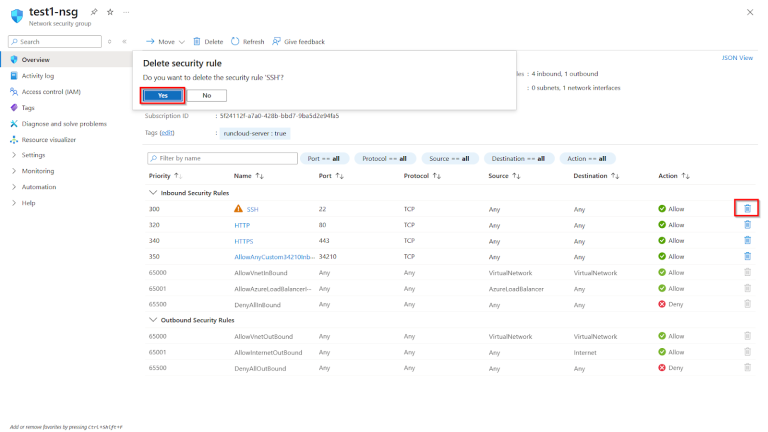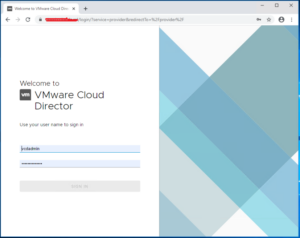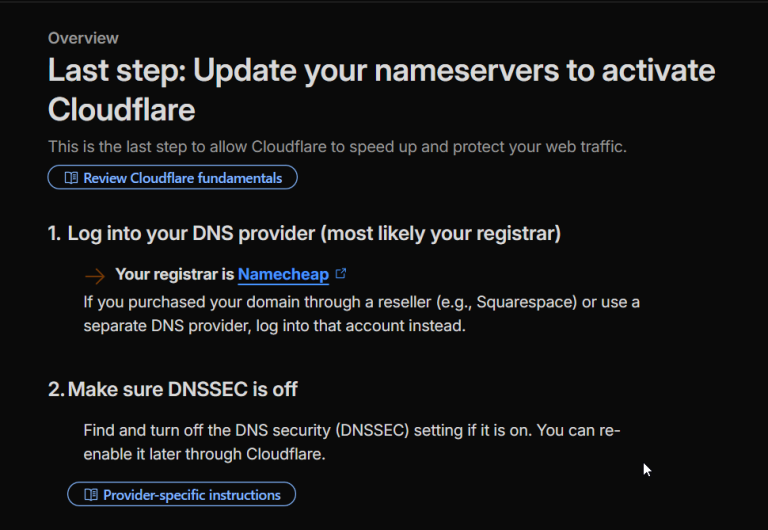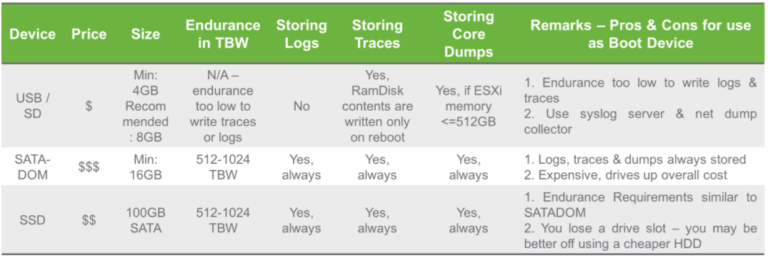
These are some of the projects I recommend for interacting with or chatting with PDF documents. However, if you know of more tools that offer similar functionality, feel free to comment below and share them with the community! But recently, I’ve noticed many comments asking about local AI tools to interact with PDFs and documents.Whether you’re summarizing long research papers, extracting key insights, or just searching for specific details, these tools will have your back.Now, during my research, I stumbled upon countless AI-powered websites that promise to summarize, query, or analyze PDFs. Key features:PrivateGPT is a production-ready, privacy-focused AI project that enables you to interact with your documents using Large Language Models (LLMs), completely offline. Key features:
Table of Contents
1. Chatd
That’s why I’ve put together this list of open-source AI projects that let you interact with PDFs locally. These tools enable you to have your data stay on your machine, offline, and under your control. chatd is a desktop application that allows you to chat with your documents locally using a large language model.
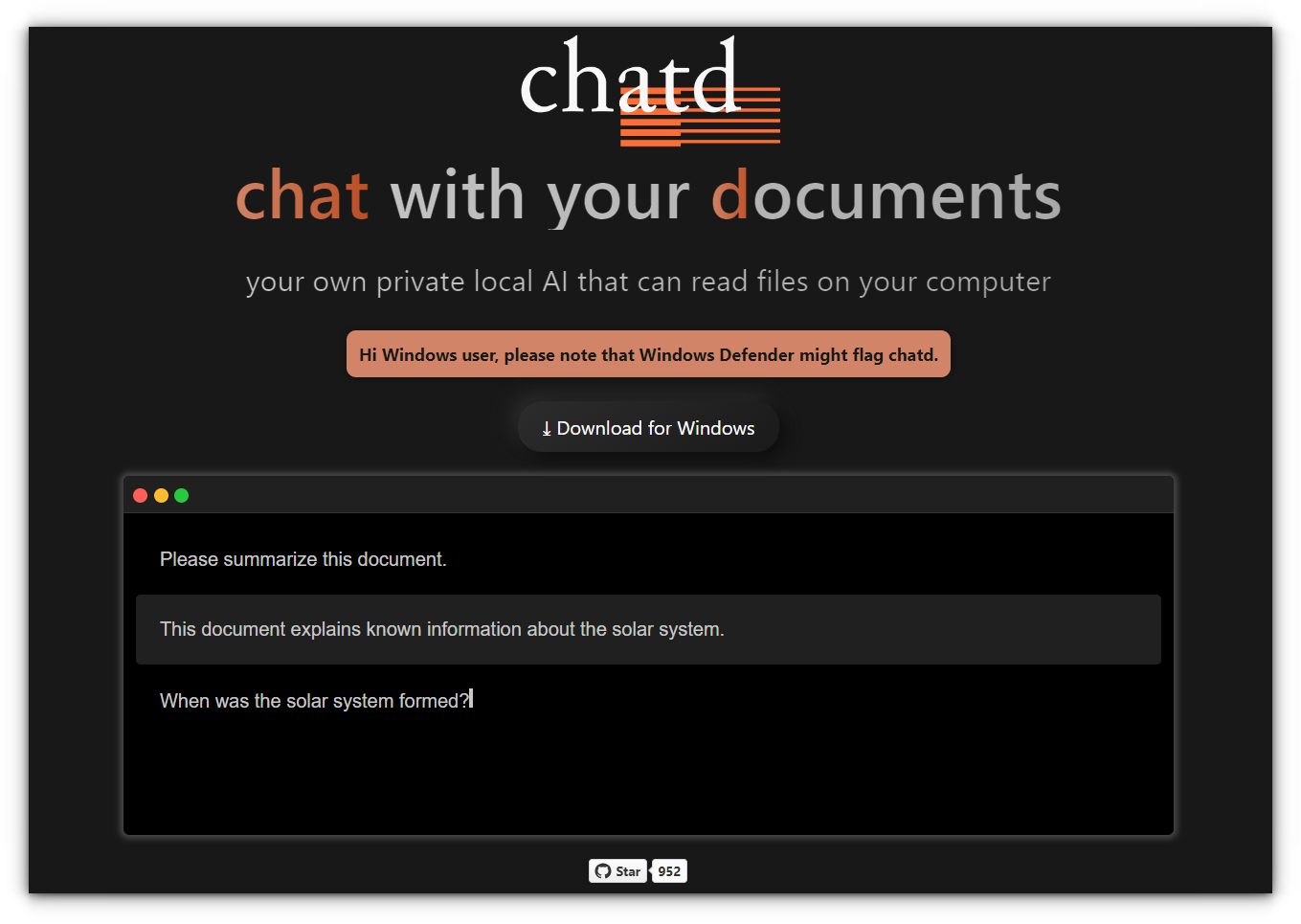
Key features:
- All your data stays on your computer and is never sent to the cloud.
- Comes pre-packaged with Ollama, a local LLM server that manages the language model for you. If you already have Ollama running, chatd will automatically use it.
- Works seamlessly on Windows, macOS, and Linux.
- Advanced users can enable GPU support or select a custom LLM.
2. localGPT
Key features:
- All processing happens on your machine, ensuring no external data leaks.
- Integrates seamlessly with popular open-source models like HF (HuggingFace), GPTQ, GGML, and GGUF.
- Uses LangChain and ChromaDB to run a fully local Retrieval-Augmented Generation (RAG) pipeline.
- Comes with two GUIs, one API-based and the other standalone using Streamlit.
- Optional session-based history to remember your previous questions.
- Supported File Formats: PDFs, TXT, CSV, DOCX, Markdown, and more. You can add custom loaders via LangChain.
3. PrivateGPT
Key features:
- Run LLMs locally without the need for cloud-based API calls.
- Works entirely offline, ensuring privacy and control over your data.
- Download and install the application on Windows, macOS, or Linux to get started immediately.
- GPT4All offers a Python client for integrating LLMs into your own applications.
- The LocalDocs feature allows you to privately chat with your documents, offering a secure way to interact with local data.
- Can be integrate with Langchain for enhanced functionality and access to external databases such as Weaviate.
5. LM Studio (Editor’s Choice ⭐)
Key features:
- LM Studio lets you download LLMs directly from Hugging Face using its in-app browser.
- Use a simple, user-friendly interface to chat with AI models for tasks like answering questions, generating text, or analyzing content.
- Introduced in version 0.3, you can now upload documents and interact with them locally (still in beta).
- It works as a local server, allowing seamless integration of AI models into your projects without relying on third-party services.
- On-demand model loading helps optimize system resources by loading models only when needed.
- Explore trending and noteworthy LLMs in the app’s Discover page.
- It also supports vision-enabled AI capabilities with MistralAI’s Pixtral models for advanced applications.
- Available for macOS, Windows, and Linux and Apple Silicon Macs.

Wrapping up
LM Studio has become my go-to tool for daily use, and it’s easily my favorite project in this space. The application is designed to run smoothly on a variety of systems. It’s perfect for privacy-conscious users who want local AI capabilities to interact with documents or chat seamlessly.I started with PrivateGPT, but once I tried LM Studio, I instantly fell in love with its clean UI and the ease of downloading models. Some were sleek and polished but unsurprisingly, most were paid or had limited “free tier” options. And let’s be honest, when you’re uploading documents to a cloud service, there’s no real guarantee of privacy.

